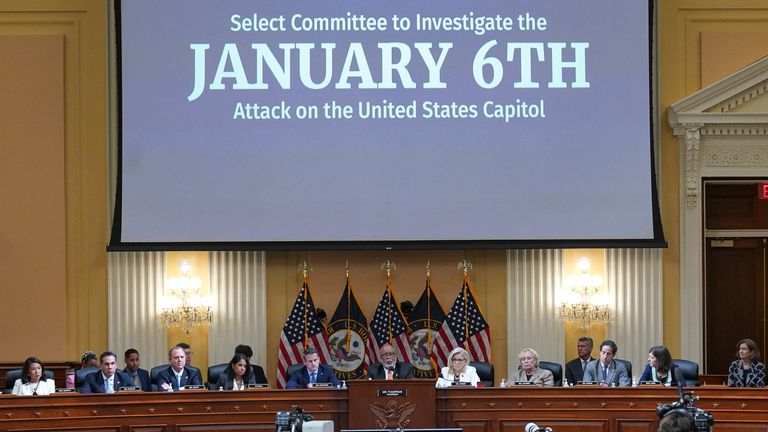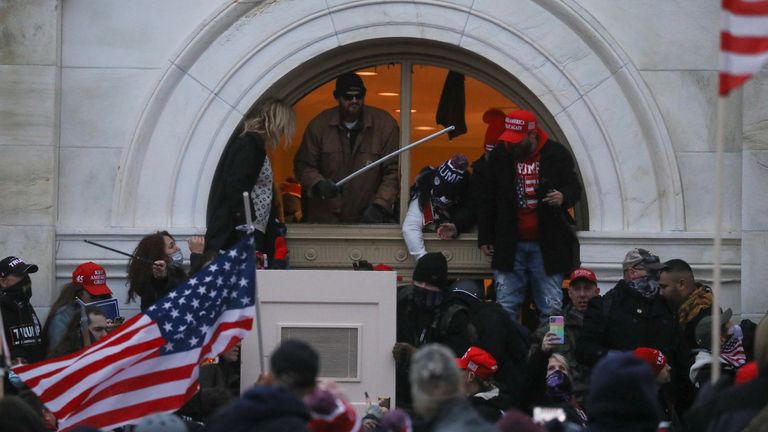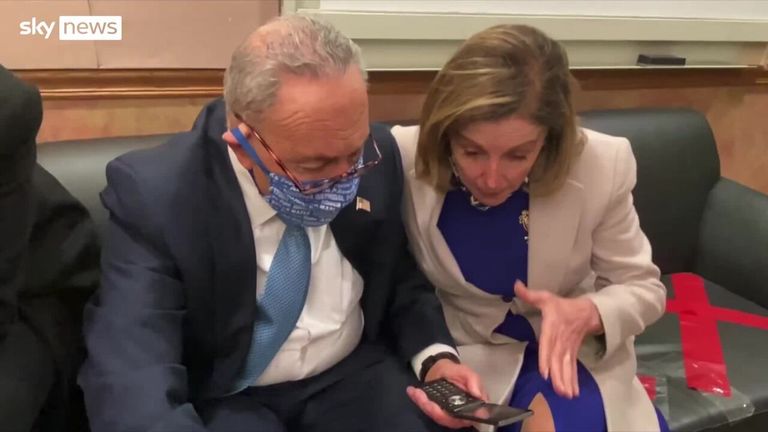Donald Trump has responded to a congressional committee that wants to hear his evidence about the assault on the US Capitol building, but he hasn’t said whether he will appear.
In a memo to members of the January 6 committee, he didn’t address their subpoena calling on him to give evidence before them.
Rather, he launched a fresh attack on their investigation, calling it a “witch-hunt of the highest level”.
In the 14-page document – published on his ‘Truth Social’ media platform – he repeated his complaints about the committee’s work, stating there was “anger, disappointment and complaint” that it hadn’t examined what he called “the massive Election Fraud”.
The absence of a definitive response leaves doubt over whether the former president will appear before the committee.
In its last scheduled hearing, the panel voted unanimously to subpoena him to give evidence.
Vice-chair Liz Cheney said: “We must seek the testimony under oath of January 6th’s central player.”
The final hearing pulled together evidence that the committee said demonstrated the intention of Mr Trump to ignore the rule of law and stay in power.
It presented evidence that he planned to overturn the result of the 2020 election, long before election day itself, and that he pressured state officials and others to subvert the outcome.
Evidence was also heard that the US secret service was warned, before 6 January 2021, of plans by Trump supporters to storm the Capitol in Washington DC.
Without a decision by Mr Trump to appear before the committee, it’s unclear whether he can be legally forced to.
Mr Trump’s record of resistance to legal probing would, almost certainly, signal a protracted legal battle preceding any appearance.
In the absence of a Supreme Court precedent giving Congress powers to force a former president to give evidence about his time in office, some US legal analysts have described the subpoena as symbolic.










